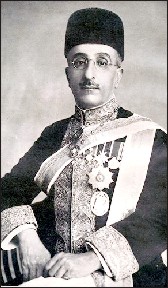“Meet or talk to at least one new person, whom you did not know, every day.”
Krishna Prasad, Editor-in-Chief of the national news magazine Outlook, was in city on July 1, 2014 to participate in the PRESS Day celebrations organised by Karnataka Media Academy and the Department of Information at Rani Bahadur auditorium in Manasagangotri. It was Star of Mysore that first discovered the journalist in this talented Mysore boy and published his writings. Later he started out as a stringer for The New Indian Express under the editorship of T. J. S. George while he was still studying electronics in college. He has also worked for The Sunday Observer (now defunct) and The Times of India.
He has edited the English daily Vijay Times (now converted into Bangalore Mirror). He joined Outlook as a reporter and later became the magazine’s special issue editor. In October 2008 he took over as editor of Outlook and now the Editor-in-Chief. Krishna Prasad, who publishes the popular blog, Churumuri, has also instituted the T.S. Satyan Memorial Awards for Photo-journalism (in memory of city’s noted photo-journalist) in association with Karnataka Photo News (KPN), a regional photo news agency based in Bangalore. Here we publish an article titled “Ten-and-a-half rules to be a good journalist” by Krishna Prasad, for the benefit of both the aspiring and working journalists. —Ed
By Krishna Prasad
My father was not a journalist. My mother was not a journalist. Nobody in our family was a journalist. I did not go to a journalism school. Or do a BA or an MA, or get a Ph.D in journalism. No teacher ever taught me how to become a journalist. I have never bought or read a book titled “How to be a Good Journalist.”
I say all this not to boast about myself but to draw your attention to the simple beauty of journalism — “The World’s Best Profession,” according to the Nobel Prize-winning author Gabriel Garcia Marquez — which welcomes thousands of utterly “unqualified” people like me to proudly call ourselves and earn a living as journalists.
This is a power — and a pleasure and a privilege — no other profession offers. Doctors, engineers, bureaucrats, police officers, teachers, beauticians, nurses… all of them have to attend classes, read textbooks, take tuitions, write exams and pass courses before they can “qualify.”
Not us, journalists. We are proud students in the “University of Life.” We are journalists not because we could not become doctors or engineers, but because all we wanted to be was journalists. Passion is the fuel that drives our profession.
Look around you and you will notice that most of India’s most influential names in English journalism are not “qualified” journalists. From George Verghese to T.J.S. George, from Aroon Purie to Arun Shourie, from M.J. Akbar to Vinod Mehta, from Shekhar Gupta to Swapan Dasgupta, from Cho. Ramaswamy to Arnab Goswami… none of them “studied” journalism to become journalists.
Neither did the great Editor-in-Chief of Harijan and Young India, Mahatma Gandhi.
There are fine exceptions, of course, like N. Ram of The Hindu who went to the Graduate School of Journalism at Columbia University, as did Barkha Dutt of NDTV. But, on the whole, it is fair to say that in India, only diploma-holders, graduates and post-graduates in journalism do not become good journalists.
On the contrary, on available evidence, the opposite is true.
To paraphrase the West Indian cricket writer C.L.R. James: “What do they know of journalism who only journalism know?”
This is not to decry the value of journalists holding a formal journalism degree or the fine work being done by specialised journalism schools and colleges in Universities. Just a statement of fact.
Why this is so simple: Journalism cannot be taught but it can be learnt. No one can teach you how to be a journalist but anyone, anywhere — male or female, young or old, urban or rural, rich or poor — can learn how to be a journalist.
This is not a new paradox. Even in the 1930s, the University of Mysore debated whether the subject of journalism should be offered as a course at all, since it is neither an art nor a science.
So, on the strength of having spent 28 years in journalism without a journalism degree, here are 10-and-a-half things which should help any journalist to become a good journalist — or anybody who wants to become a journalist.
10- DO WHAT YOU LOVE: Whether you want to be a political journalist or a business journalist or a cricket journalist or a film journalism, if you do not love what you do, your reader or viewer will not feel your passion. Choose your field not because somebody suggests it but because you want to. Be responsible for your life, don’t blame others for what you become or don’t become.
9- WAKE UP ANGRY, AMBITIOUS: Get the fire in your belly to do something with your life, to set right something in your village, town, city or country. Respond to injustice, inhumanity, corruption. Comfort the afflicted, afflict the comfortable. Don’t think it is somebody else’s job. As Gandhi said, “be the change you want to see.”
8- DON’T BE THE MEMBER OF ANY PARTY, GROUP, CLUB, NGO: Credibility is everything in journalism. Retain your independence. Do not be too close to any politician, businessman, film actor or PRO. Be skeptical not cynical. Don’t mortgage your integrity. It’s like virginity — once you lose it, you have lost it forever.
7- BE CATHOLIC OF WRITERS AND WRITING: Read newspapers, magazines, books, website across the board. Do not read only what you like but what you also do not like. Admire writers/writing irrespective of ideology. In the age of the internet, you have no excuses for your ignorance.
6- FIND YOURSELF A ROLE-MODEL/MENTOR: Have a hero (or heroine) who has been there and done that in journalism. Keep in touch with people who will help you achieve your aims. Meet or talk to at least one new person, whom you did not know, every day.
5- BE A THRIVER, NOT A SURVIVOR: Don’t coast along, don’t be afraid to try out something new. Aim high, dream, have an ambition, set yourself a goal. Take a risk, think big, think differently, don’t be predictable. At the same time, develop the stamina to withstand obstacles and defeats.
4- NEVER WORK WITH SUCCESS/ REWARD IN MIND: Work for fun and satisfaction, the rewards will come on their own. Don’t fall for cheap praise and don’t be stalled by even cheaper criticism.
3- WRITE, DRAW, SHOOT, CREATE EVERY DAY: Eventually your habits become you. Practice makes you perfect. Develop the three Ds — discipline, dedication, determination — and reward and recognition will naturally follow.
2- FEAR NOBODY, QUESTION EVERYTHING: You are in the business to get the answers. Don’t be in awe of big names, power, reputations, status. This business is all about meeting total strangers and asking them questions you wouldn’t ask your parents. There are no stupid questions, only dumb answers. Talk less, listen more. Be humble of your ignorance.
1-CHASE YOUR DREAM: Stop living for others, avoid temptation, life is not all about money. Let your reputation never be under question. It’s true — it’s possible to earn decently and live honourably as a journalist.
1/2 – And this half-rule: IF POSSIBLE, MARRY OUTSIDE THE PROFESSION: There’s nothing more boring and dreadful than waking up with somebody who goes through the same pangs and problems as you.
source: http://www.starofmysore.com / Star of Mysore / Home> Feature Articles / July 07th, 2014








